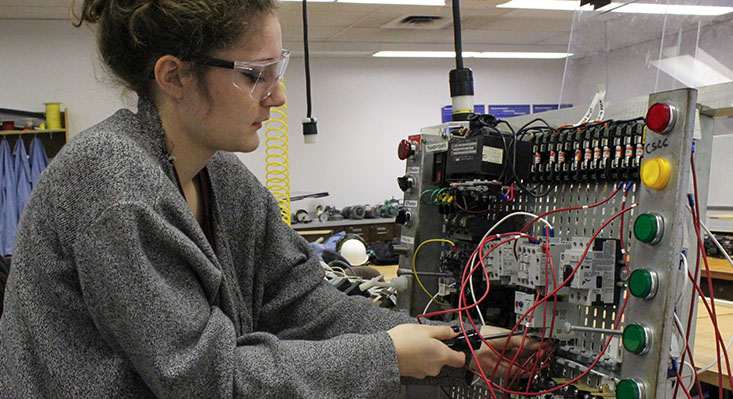Engineering Mechanics: An Indispensable Tool for Electrical Engineers?

Shooting for the Women in STEM project
In the realm of engineering, the interplay between different disciplines is often overlooked. One such example is the relationship between electrical engineering and engineering mechanics. The question that arises is, Do electrical engineers need engineering mechanics? The answer is a resounding yes. This article aims to delve into the reasons why engineering mechanics is crucial for electrical engineers and how it enhances their professional capabilities.
Engineering mechanics is the branch of engineering that applies the principles of physics to design, analyze, and predict the behavior of physical systems. It is a foundational discipline in engineering, providing the basic tools and methodologies used in all other branches of engineering.
Electrical engineering, on the other hand, is a field that deals with the study and application of electricity, electronics, and electromagnetism. It involves designing electrical circuits, devices, and systems. At first glance, it may seem like these two fields are distinct, with little overlap. However, a closer look reveals that engineering mechanics plays a significant role in electrical engineering.
Firstly, engineering mechanics provides the fundamental principles that underpin the design and analysis of electrical devices and systems. For instance, the principles of force, motion, and energy are crucial in understanding how electrical devices work and how they interact with their environment. This understanding is vital in designing efficient and reliable electrical systems.
Secondly, engineering mechanics is essential in the field of electromechanical systems, which is a significant subset of electrical engineering. Electromechanical systems involve the interaction of electrical and mechanical components, such as in electric motors and generators. Understanding the mechanical behavior of these components, such as their motion and the forces acting on them, is crucial in designing and optimizing these systems.
Thirdly, engineering mechanics is also important in the field of microelectromechanical systems (MEMS), which are tiny devices that combine mechanical and electrical components. These devices are used in a wide range of applications, from sensors in smartphones to components in medical devices. Designing these devices requires a deep understanding of both electrical engineering and engineering mechanics.
Lastly, engineering mechanics is also relevant in the field of materials science, which is a key area in electrical engineering. Materials science involves the study of the properties of materials and how they can be used in electrical devices and systems. Understanding the mechanical properties of materials, such as their strength and stiffness, is crucial in selecting the right materials for different applications.
In conclusion, engineering mechanics is not just a useful tool for electrical engineers; it is an indispensable one. It provides the fundamental principles that underpin the design and analysis of electrical devices and systems, and it is crucial in several key areas of electrical engineering, including electromechanical systems, MEMS, and materials science. Therefore, electrical engineers who wish to excel in their field should not overlook the importance of engineering mechanics.